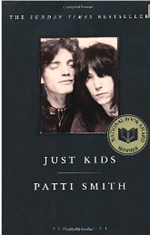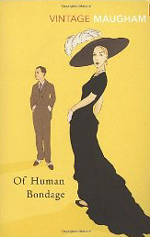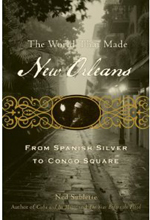Justin Adams is considered to be one of the UK’s most original guitarists and record producers and is an extremely versatile collaborator. He was brought up in the Middle East - his father was a British diplomat in Jordan and Egypt - and his music is very strongly influenced by his early exposure to Arab culture, in addition to African music, blues, dub and psychedelia.
After eight fruitful years working with Jah Wobble’s band Invaders of the Heart, touring and co-writing three albums, including the Mercury Prize-nominated Rising Above Bedlam, Adams worked with various musicians including the Algerian singer Abdel Slimani, Brian Eno and Sinead O’Connor. Working with the French band Lo’Jo marked a turning point in his career as he toured with the band on a cultural exchange to Bamako, Mali, where he met Malian band Tinariwen, and went on to produce all three of their highly acclaimed albums. He also released a solo album, Desert Road, in 2005.
Adams currently plays for Robert Plant and the Strange Sensation – he co-wrote Plant’s album Mighty Rearranger (2005) – and also records and performs alongside Ben Mandelson and Lu Edmonds as Les Triaboliques, releasing the album rivermudlight in 2009. Since 2007, he has collaborated with Gambian musician Juldeh Camara, sometimes under the name JuJu, and together they have released three albums, Soul Science, Tell No Lies and Trance Sessions, and an EP, In Trance. They will be performing at the Barbican as part of the Transcender Festival at the Barbican on 23 September.
What are you reading at the moment?
I've just finished Patti Smith's Just Kids - a beautifully written memoir about embarking on a life passionately devoted to art, set in 1960s New York where the figures of Warhol, Dylan, Hendrix, Harry Smith and Ginsberg loom large. I saw her live at the Rainbow in 1977 and have been smitten ever since.
[Excerpt from Just Kids by Patti Smith (Bloomsbury Publishing)]
 I had no concept of what life at the Chelsea Hotel would be like when we checked in, but I soon realised it was a tremendous stroke of luck to wind up there. We could have had a fair-sized railroad flat in the East Village for what we were paying, but to dwell in this eccentric and damned hotel provided a sense of security as well as a stellar education. A week or two after we moved in I waltzed into the El Quixote. It was a bar-restaurant adjacent to the hotel, connected to the lobby by its own door, which made it feel like our bar, as it had been for decades. Dylan Thomas, Terry Southern, Eugene O’Neill and Thomas Wolfe were among those who had raised one too many a glass there.
I had no concept of what life at the Chelsea Hotel would be like when we checked in, but I soon realised it was a tremendous stroke of luck to wind up there. We could have had a fair-sized railroad flat in the East Village for what we were paying, but to dwell in this eccentric and damned hotel provided a sense of security as well as a stellar education. A week or two after we moved in I waltzed into the El Quixote. It was a bar-restaurant adjacent to the hotel, connected to the lobby by its own door, which made it feel like our bar, as it had been for decades. Dylan Thomas, Terry Southern, Eugene O’Neill and Thomas Wolfe were among those who had raised one too many a glass there.
I was wearing a long rayon navy dress with white polka dots and a straw hat, my East of Eden outfit. At the table to my left, Janis Joplin was holding court with her band. To my far right were Grace Slick and the Jefferson Airplane, along with members of Country Joe and the Fish. At the last table facing the door was Jimi Hendrix, his head lowered, eating with his hat on, across from a blonde. There were musicians everywhere, sitting before tables laid with mounds of shrimp with green sauce, paella, pitchers of sangria, and bottles of tequila. I stood there amazed, yet I didn’t feel like an intruder. The Chelsea was my home and the El Quixote my bar. There were no security guards, no pervasive sense of privilege.
They were here for the Woodstock festival. Grace Slick got up and brushed past me. She was wearing a floor-length tie-dyed dress and had dark violet eyes like Liz Taylor.
“Hello,” I said, noticing I was taller.
“Hello yourself,” she said.
When I went back upstairs I felt an inexplicable sense of kinship with these people, though I could never have predicted that I would one day walk in their path. At that moment I was still a gangly 22-year-old book clerk, struggling simultaneously with several unfinished poems. The Chelsea was like a doll’s house in the Twilight Zone, with a hundred rooms, each a small universe. I wandered the halls seeking its spirits, dead or alive. My adventures were mildly mischievous, tapping open a door slightly ajar and getting a glimpse of Virgil Thomson’s grand piano, or loitering before the nameplate of Arthur C Clarke, hoping he might suddenly emerge. Occasionally I would bump into Gert Schiff, the German scholar, armed with volumes on Picasso, or Viva in Eau Sauvage. Everyone had something to offer and nobody appeared to have much money. Even the successful seemed to have just enough to live like extravagant bums.
What book can you recommend that you've read in the past?
Italo Calvino's Invisible Cities is about the only book I re-read often. Its one-page chapters capture the way the atmosphere of a city is formed over years by the loves, anxieties and struggles of its people. At times it reaches an almost biblical level of depth and humanity.
A recent revelation was Somerset Maugham's Of Human Bondage, a merciless self-portrait of a young Londoner at the start of the 20th century being pulled to pieces by desire and money, damaged by a brutal and loveless childhood.
[Excerpt from Of Human Bondage by Somerset Maugham (Vintage Classics)]
 He got up at last, exhausted and ashamed, and washed his face. He mixed himself a strong whisky and soda. It made him feel a little better. Then he caught sight of the tickets to Paris, which were on the chimney-piece, and, seizing them, with an impulse of rage he flung them in the fire. He knew he could have got the money back on them but it relieved him to destroy them. Then he went out in search of someone to be with. The club was empty. He felt he would go mad unless he found someone to talk to; but Lawson was abroad; he went on to Hayward’s rooms: the maid who opened the door told him that he had gone down to Brighton for the week-end. Then Philip went to a gallery and found it was just closing. He did not know what to do. He was distracted. And he thought of Griffiths and Mildred going to Oxford, sitting opposite one another in the train, happy. He went back to his rooms, but they filled him with horror, he had been so wretched in them; he tried once more to read Burton’s book, but, as he read, he told himself again and again what a fool he had been; it was he who had made the suggestion that they should go away, he had offered the money, he had forced it upon them; he might have known what would happen when he introduced Griffiths to Mildred; his own vehement passion was enough to arouse the other’s desire. By this time they had reached Oxford. They would put up in one of the lodging-houses in John Street; Philip had never been to Oxford, but Griffiths had talked to him about it so much that he knew exactly where they would go; and they would dine at the Clarendon: Griffiths had been in the habit of dining there when he went on the spree. Philip got himself something to eat in a restaurant near Charing Cross; he had made up his mind to go to a play, and afterwards he fought his way into the pit of a theatre at which one of Oscar Wilde’s pieces was being performed. He wondered if Mildred and Griffiths would go to a play that evening: they must kill the evening somehow; they were too stupid, both of them, to content themselves with conversation; he got a fierce delight in reminding himself of the vulgarity of their minds which suited them so exactly to one another.
He got up at last, exhausted and ashamed, and washed his face. He mixed himself a strong whisky and soda. It made him feel a little better. Then he caught sight of the tickets to Paris, which were on the chimney-piece, and, seizing them, with an impulse of rage he flung them in the fire. He knew he could have got the money back on them but it relieved him to destroy them. Then he went out in search of someone to be with. The club was empty. He felt he would go mad unless he found someone to talk to; but Lawson was abroad; he went on to Hayward’s rooms: the maid who opened the door told him that he had gone down to Brighton for the week-end. Then Philip went to a gallery and found it was just closing. He did not know what to do. He was distracted. And he thought of Griffiths and Mildred going to Oxford, sitting opposite one another in the train, happy. He went back to his rooms, but they filled him with horror, he had been so wretched in them; he tried once more to read Burton’s book, but, as he read, he told himself again and again what a fool he had been; it was he who had made the suggestion that they should go away, he had offered the money, he had forced it upon them; he might have known what would happen when he introduced Griffiths to Mildred; his own vehement passion was enough to arouse the other’s desire. By this time they had reached Oxford. They would put up in one of the lodging-houses in John Street; Philip had never been to Oxford, but Griffiths had talked to him about it so much that he knew exactly where they would go; and they would dine at the Clarendon: Griffiths had been in the habit of dining there when he went on the spree. Philip got himself something to eat in a restaurant near Charing Cross; he had made up his mind to go to a play, and afterwards he fought his way into the pit of a theatre at which one of Oscar Wilde’s pieces was being performed. He wondered if Mildred and Griffiths would go to a play that evening: they must kill the evening somehow; they were too stupid, both of them, to content themselves with conversation; he got a fierce delight in reminding himself of the vulgarity of their minds which suited them so exactly to one another.
What are you planning to read next?
I have been recommended Ned Sublette's The World That Made New Orleans by more than one person. That city is so central in the story of how African music exploded into the Western world in the 20th century via jazz, blues and rock and roll - I'm sure the book is full of insights as to how it happened.
[Excerpt from The World That Made New Orleans: From Spanish Silver to Congo Square by Ned Sublette (Lawrence Hill Books)]
 This book is about how New Orleans got to 1819. It’s not about music per se, but music will be a constant presence in it, the way it is in New Orleans.
This book is about how New Orleans got to 1819. It’s not about music per se, but music will be a constant presence in it, the way it is in New Orleans.
When the United States took possession of the Louisiana Purchase in 1803, the city was an urban crossroads of languages, both spoken and musical, with a complex Afro-Louisianan culture already in existence. By the time Louisiana became the 18th state in 1812, most of the elements that make New Orleans so visibly, and audibly, different from the rest of the country were already in place.
New Orleans was the product of complex struggles among competing international forces. It’s easy to perceive New Orleans’s apartness from the rest of the United States, and much writing about the city understandably treats it as an eccentric peculiar place. But I prefer to see it in its wider context. A writer in 1812 called it “the great mart of all the wealth of the Western world”. By that time, New Orleans was a hub of commerce and communication that connected the Mississippi watershed, the Gulf Rim, the Atlantic seaboard, the Caribbean Rim, Western Europe (especially France and Spain), and various areas of West and central Africa.
New Orleans is an alternative American history all in itself. Different in everything, Louisiana had what amounted to three colonial eras in rapid succession: French, Spanish, Anglo-American. Moreover, each colonial power that ruled Louisiana was associated not only with a different European language, but with a different slave regime. Each change of flag brought new laws and customs, causing black New Orleans to develop differently according to the possibilities afforded it during each of the colonial periods, and each flag brought with it distinct black populations. The Bambara, the Bakongo, the Baptists – they came in different demographic waves, at different moments in history. Each new wave had to fit into, and become another layer in, the increasingly cosmopolitan African culture of New Orleans, which from the earliest days of slavery in Louisiana had its own personality.
Louisiana was founded as a French project, but the French colonisation effort was half-hearted and brief, and the French king gave Louisiana away to Spain. A little more than forty years later, the still mostly French-speaking territory returned to French control – but only for 20 days, until Napoleon Bonaparte’s governor could hand Louisiana over to the United States.















Add comment